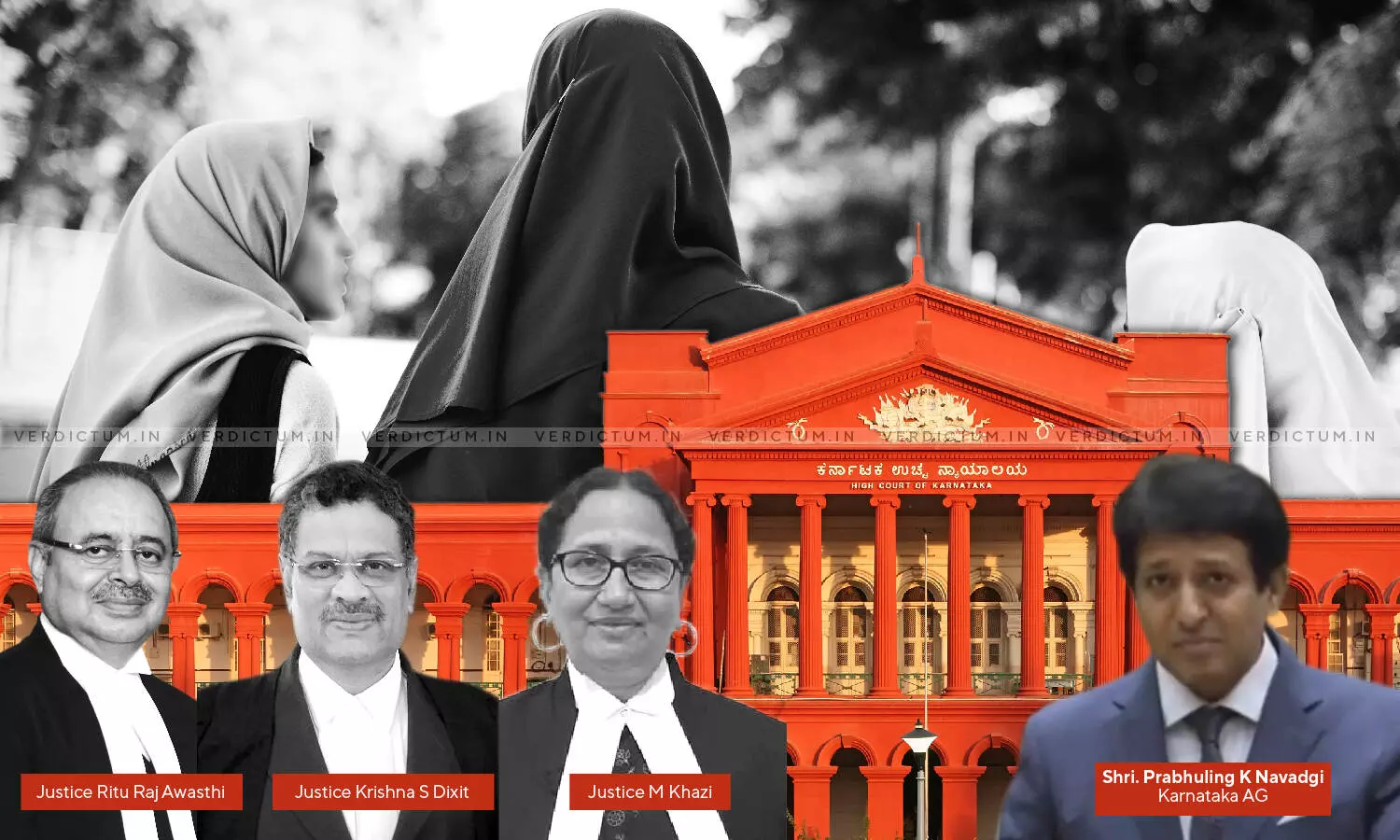
Practice Of Hijab Must Pass Test Of Constitutional Morality And Individual Dignity: Advocate General Before Karnataka HC
 |
|Advocate General (AG) of Karnataka commenced his arguments before the full bench of the Karnataka High Court, in response to the cases filed challenging the restrictions imposed on wearing of hijab inside classrooms in government schools.
Senior Advocate Prabhuling Navadgi, the AG, comments his arguments by saying that the controversy falls into three categories, the first about the legality of the government order of 5 February, second about the practice of wearing hijab being a fundamental right protected under Article 25 and the third, the argument that the right to wear hijab can be traced to Article 19(1)(a) of the Constitution of India and hence prevention of the practice violates the said Article.
With respect to the first category, the AG submitted that the government order is perfectly in accordance with the provisions of the Education Act.
With respect to the practice of wearing hijab, the AG said that "practice of hijab does not form part of essential religious practice of Islam. That is the stated stand of the State and we will justify the same".
With respect to the third, the AG said that the restriction does not violate Article 19(1)(a).
Before expanding on his contentions, the AG said that the state wants to place "a positive proposition" before the Court. That proposition according to the AG is that "the practice of hijab to be accepted, must pass the test of constitutional morality and individual dignity as enshrined and expounded by the Hon'ble Supreme Court in Sabarimala and Shayara Bano's case".
"This is an independent proposition we are making before your lordships", the AG said.
Shayara Bano's case is the Supreme Court's 5 judge bench decision of 2017, declaring the practice of Triple Talaq unconstitutional by a 3:2 majority.
Sabarimala judgment is the 2018 judgment of a five-judge bench the Supreme Court in the matter of Indian Young Lawyers Association & Ors. V. State of Kerala & Ors.
In the said judgment, Justice D. Y. Chandrachud's opinion states, "In the public law conversations between religion and morality, it is the overarching sense of constitutional morality which has to prevail. While the Constitution recognises religious beliefs and faiths, its purpose is to ensure a wider acceptance of human dignity and liberty as the ultimate founding faith of the fundamental text of our governance. Where a conflict arises, the quest for human dignity, liberty and equality must prevail".
The Advocate General did not finish his first limb of arguments about the state government's order of 5 February. He will continue his argument on Monday at 2.30 pm.